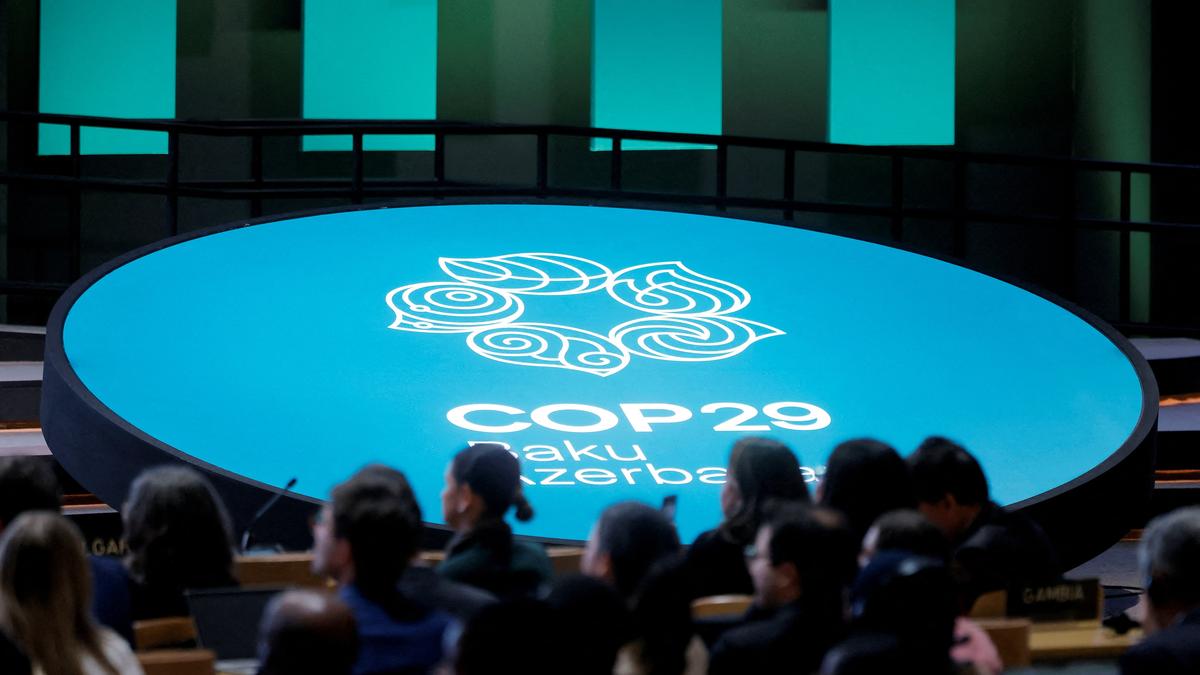 |
|
The recently concluded COP29 climate summit in Baku, Azerbaijan, ended with a hard-fought agreement on a $300 billion annual climate finance plan for developing nations. While COP29 President Mukhtar Babayev hailed the deal as a breakthrough, its reception has been far from universally positive. Many recipient countries consider the sum woefully insufficient to address the escalating costs of global warming, highlighting a significant gap between the financial commitments of developed nations and the actual needs of those most vulnerable to climate change impacts. The summit's success was further overshadowed by the looming return of Donald Trump to the US presidency, injecting considerable uncertainty into the future of US climate commitments and international cooperation.
The success of securing even this modest financial agreement was achieved against a backdrop of significant geopolitical challenges. The rise of isolationist politics globally has diminished the priority given to climate action in many nations. The ongoing war in Ukraine and escalating tensions in the Middle East have diverted resources and attention away from climate issues, creating a challenging environment for securing ambitious commitments. The uncertainty surrounding the United States' future role in global climate cooperation, given Trump's stated intention to withdraw from the Paris Agreement, further complicated negotiations. While US delegates at COP29 attempted to assure global partners that market forces and existing policies would continue renewable energy development, the lack of a firm commitment from the incoming administration fuelled anxieties and skepticism amongst other nations.
The slow progress on global emissions reduction, which continues to rise despite international efforts, contributed to increasing tension and calls for reform within the UNFCCC process. Concerns were raised about the influence of a small number of countries, driven by their economic interests, to potentially derail the entire climate negotiation process. This sentiment was notably expressed by Jiwoh Abdulai, Sierra Leone's Environment Minister. The negotiations themselves were fraught with conflict, exemplified by the walkout of negotiating blocs representing Least Developed Countries (LDCs) and small island states, who felt marginalized and unheard throughout the process. Their frustration stemmed from the perceived unwillingness of wealthier nations to significantly increase their financial contributions, forcing a compromise that many considered inadequate and unjust.
The outcome of COP29 has left a legacy of mistrust and disappointment, particularly amongst vulnerable nations. The criticisms levelled at the $300 billion finance deal, deemed insufficient to meet their needs, cast a shadow over the future of international climate cooperation. Statements from envoys like Tina Stege from the Marshall Islands and Chandni Raina from India underscored this deep-seated frustration with the perceived lack of commitment and political maneuvering during the negotiations. The significant divisions exposed at COP29 will undoubtedly pose a considerable challenge for COP30, scheduled to take place in Belem, Brazil. The task of rebuilding trust and generating greater ambition for emissions reductions and climate resilience will be a daunting one for the Brazilian presidency.
Experts now see the COP29 outcome as a ‘toxic chalice’ for Brazil, highlighting the immense difficulty of restoring faith in the multilateral climate process. The challenge for COP30 will be to navigate the complex geopolitical landscape, address the concerns of developing nations regarding adequate finance and support, and generate the necessary political will for stronger emissions reductions targets. The success of COP30 will be crucial in determining whether global efforts to combat climate change can regain momentum and effectively address the escalating threats posed by global warming. The lack of progress in Baku highlights the urgent need for a more equitable and effective system for international climate cooperation, one that prioritizes the needs of the most vulnerable countries and fosters greater trust and collaboration among all nations.
The stark reality is that the challenges facing global climate action are multifaceted and deeply entrenched. Simply increasing financial commitments, while necessary, is insufficient without addressing the broader political, economic, and social factors that hinder progress. Ultimately, the effectiveness of future climate summits will depend on a fundamental shift in global priorities, a stronger commitment to multilateralism, and a willingness to confront the difficult political and economic realities that threaten our collective future. The lackluster results of COP29 serve as a stark reminder of the urgent need for transformative change if we are to avert the most catastrophic consequences of climate change.
Source: COP29 fizz-out sets up ‘toxic chalice’ at next year’s climate summit | Analysis
